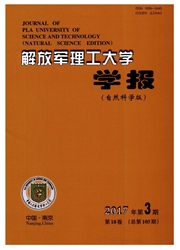

 中文摘要:
中文摘要:
鉴于信号检测在认知无线电信号中的重要作用,研究了恒模盲信号检测算法(CMA)在认知无线电中的应用。针对于原有典型恒模盲信号检测算法的性能上的劣势,结合最优化理论,提出了一种线性受限拟牛顿恒模算法,称之为LC-DPFCMA,并将它与传统的线性受限恒模算法(LC-CMA)及最小二乘恒模算法(LSCMA)进行了仿真比较。仿真结果表明,提出的LC-DPFCMA算法比LC-CMA算法收敛效果较好;与LSCMA算法相比,算法复杂度有明显降低,且在低信噪比下表现优秀。
 英文摘要:
英文摘要:
Signal detection plays an important role in cognitive radio. Applications of the CMA blind signal detection algorithm in cognitive radio was analyzed. Given to the disadvantages of the original typical CMA blind signal detection, a linearly constrained quasi-Newton constant modulus algorithm (LC-DFPCMA) was proposed with the optimization theory. The simulation results show that LC-DFPCMA can track the user number faster than conventional LC-CMA and make convergence better as well. It has outstanding performance at low signal-to-noise, with its complexity obviously low than conventional LSCMA.
 同期刊论文项目
同期刊论文项目
 同项目期刊论文
同项目期刊论文
 期刊信息
期刊信息
